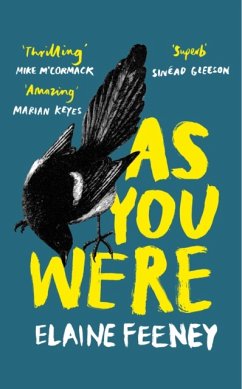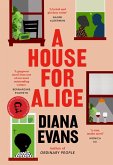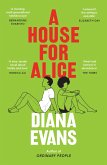Sinéad Hynes is in hospital, her family believes it is nothing serious, maybe the property developer just worked too much. But she knows better and has kept it a secret for quite some time: the cancer is terminal and now it is too late for a treatment. Suffering severely, she shares the ward with
Margaret Rose who welcomes all her family daily and thus creates an almost intolerable fuss. There is…mehrSinéad Hynes is in hospital, her family believes it is nothing serious, maybe the property developer just worked too much. But she knows better and has kept it a secret for quite some time: the cancer is terminal and now it is too late for a treatment. Suffering severely, she shares the ward with Margaret Rose who welcomes all her family daily and thus creates an almost intolerable fuss. There is also Jane who is often confused, but at times, she remembers, e.g. that she had known the mother of another patient who shares the ward. Strangers become intimate, enclosed in such a tight environment and thus, they necessarily take part of the others’ fate and get to know their secrets.
Elaine Feeney’s debut is like a theatre play: a limited place with a limited number of characters who cannot escape the narrowness of the situation they are in and who are forced into an involuntary community where they have to support each other and also, reluctantly, share intimate details of their lives. At times funny, at others very melancholy, and always showing characters exposed to this small world without any protection where also no sensitive politeness is required anymore.
What troubled me most was to which extent I could identify with Sinéad and her situation. Luckily, I have never been close to such extreme circumstances but I can completely understand why she keeps her secret from her family and prefers to consult Google and tell it to a magpie instead of seeking help and compassion from her beloved ones. As readers, we follow her thoughts and only get her point of view of the events in the ward which is limited and biased, of course, but also reveals the discrepancy between what we see and understand what really goes on behind the facade of a person.
The plot also touches a very serious topic in two very different ways: double standards and honesty. Sinéad is not really frank with her husband, they do have some topics they need to talk about and which they obviously have avoided for years. Yet, for her, it is difficult to believe that somebody could just love her unconditionally and whom she can tell anything. On the other hand, the Irish catholic church’s handling with pregnant unmarried women becomes a topic – and institution which calls itself caring and welcoming everybody unconditionally played a major role in the destruction of lives.
Surely, “As You Were” is not the light-hearted summer beach read, but a through-provoking insight in a character’s thinking and struggles which touched me deeply.








